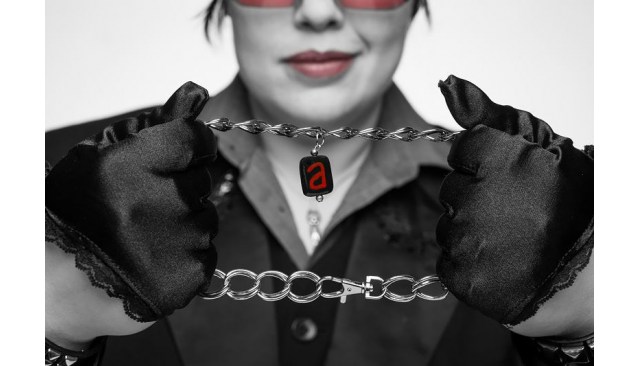Three election law bills were under consideration:
1. Councilor Sally Mayer sponsored a resolution “(a)dopting a proposition to be submitted to the voters at the next municipal election concerning a photo voter identification requirement for Albuquerque municipal elections.”
2. Councilor Michael Cadigan had been working on an ordinance amending the city charter to require voter photo IDs. The measure would go into force immediately if passed.
3. Councilor Eric Griego sponsored a floor substitute amendment to the city’s charter to provide for public campaign financing.
Mayer began discussion of her voter photo ID bill by telling the story of poor Rosemary McGee, who went to vote and found someone had already voted using her name. Mayer offered new bill language as an amendment, although Councilor Martin Heinrich commented that the language changed everything in the bill except the brief, upfront “Whereas” material. Mayer said that, as the bill’s author, she could call it an amendment if she wanted to.
The amendment requires voters who go to polling places to show a photo ID. Voters without a photo ID can either go to the City Clerk’s office to get a voter ID and then come back to the polls, or can vote using a provisional ballot, in which case they have to return to the polling place within the 10-day canvassing period with an acceptable form of ID unless they have a religious objection to being photographed.
Griego asked if the amendment included a provision for identifying absentee voters. Mayer said no.
Heinrich said he was baffled that people voting on Election Day faced a different standard than absentee voters, and that he would find it much easier to commit fraud by absentee ballot. Mayer said that was a different thing.
Heinrich asked if Mayer would be amenable to looking at both sides of the equation.
Mayer said certainly, but not if it slowed the bill down.
Gomez asked if Mayer had any evidence of widespread fraud. Mayer again mentioned Rosemary McGee.
Loy said voting was the most precious right we had.
Winter said it was amazing how many documented cases the City Clerk had on voter fraud.
Five public speakers supported the bill and five opposed, with one fence sitter who wanted to delay. One speaker said he was a poll challenger and he’d seen a couple of women come in and vote, then return 30 minutes later to vote for long-dead husbands. [Actually, the two cases cited sounded less like fraudsters than like whackjobs.]
Cadigan asked one bill supporter if she’d like to see voter photo ID enacted before the October election, which his bill would do. She said she wanted to see enactment as soon as possible.
[Which raises the question of why fervent Republican supporters of voter ID prefer putting the issue on the October ballot, which delays it if passed, to enacting it immediately with Cadigan’s bill. Now, when Heinrich tried to put a minimum wage raise on the October ballot, accusations flew that he was trying to entice predominantly Democratic voters to the polls. Could it be that Mayer’s ballot measure is designed to draw more Republican voters, who apparently fear that armies of dusky, unqualified layabouts might expend enormous effort to commit voter fraud?]
Griego asked speakers if they thought absentee voters should also have to show proof of identity. Mayer said it would be overly burdensome to absentee voters to get a photocopy of a photo ID.
Cadigan said he had worked at polls and there was a big problem with people requesting absentee ballots for other people to keep them from voting. Griego asked if anyone knew the percentage of absentee voters who were disabled versus those who were just absentee voting for convenience. Nobody did.
Speaker Jim Noel asked to delay the bill to look at its relation to state law. He said he’d talked to the office of U.S. Attorney David Iglesias, and not one report of voter fraud had gotten to them.
The amendment—which was, in effect, the bill—passed unanimously.
Cadigan moved to defer the vote on the bill itself, saying his ordinance had similar language but would go into effect immediately instead of putting the question on the October ballot. Mayer refused to support a deferral and asked her supporters, 15 to 20 people, to stand up. She said Cadigan’s bill might not pass because it requires seven votes to amend the city’s charter.
Griego wanted a compromise, saying he was bothered by the discrepancies with state law in Mayer’s bill, and by the lack of any provision for absentee ballots. Heinrich said it didn’t make any sense to address only a piece of an issue.
Winter said that he didn’t want to wait and that Cadigan’s bill might not pass. Cadigan’s move to defer failed on a 4-4 vote, supported by Democrats Cadigan, Heinrich, Gomez, and Griego; opposed by Republicans Loy, Winter, Mayer and Cummins.
Cadigan said, since his bill might not pass, he wanted to amend Mayer’s to make it better. His amendment called for persons voting by absentee ballot to include a photocopy of an ID or the last four digits of their Social Security number along with the ballot mailed to the City Clerk. Mayer said that requirement made it look so difficult to send an ID for an absentee ballot.
Griego said if the ID rules were tightened for poll voters, it would push more fraud into the absentee ballot sector. He called for the same provision.
Someone asked if that would be too much trouble for the city. Assistant City Attorney Mark Shoesmith said the absentee process already required ballots be logged in anyway.
Mayer said she wouldn’t support Cadigan’s amendment, which made it “incredibly cumbersome” for absentee voters who were disabled to get a photocopy of their drivers license.
Heinrich said the majority of absentee voters just did it for convenience. He said that if Mayer was serious about preventing voter fraud, why not treat everyone equally? Mayer said she hadn’t felt that absentee voting was something we need to deal with.
Heinrich said, “If we fail to address absentee voting, then this is a partisan bill.” He added that everyone knew there were different party statistics for poll and absentee voters, and that there had been “huge campaigns to get people of certain registrations to vote absentee.” Mayer said she and Cadigan had spent a lot of time together that week working on their respective bills and he hadn’t said anything about absentee voting.
Loy said the issue seemed divisive so the Council should pass Mayer’s bill as is.
Heinrich said he wanted some indication whether councilors would later vote for Cadigan’s bill requiring identification from absentee voters. Mayer said she was not going to make a commitment and “called the question” to force a vote on Cadigan’s amendment, which failed on a 4-3 party line vote. By this time Gomez had left. He said in a later email that a family emergency called him away.
Griego moved an amendment offering absentee voters a choice of three different ways to verify identity: a photocopy of a photo ID, the last four digits of a Social Security number, or a signed affidavit form. He said passing his agenda would show whether councilors were “trying to solve a problem, or if there’s another agenda here.”
Someone asked if an affidavit had to be witnessed. City Attorney Bob White said that the legally significant point was whether the statement included the phrase “under penalty of perjury.”
Griego’s amendment also failed, the four Republicans voting it down. Councilor Tina Cummins called the question to end debate, which passed 4-3 on party lines.
Heinrich said that the amendment Mayer had introduced at the beginning of the debate changed everything in the bill except the “Whereas” clauses so that the new material should have been a floor substitute bill instead of an amendment. [If the legislation was classified as a floor substitute, any councilor could request a second hearing, delaying the vote until the full council was present.]
Mayer said the council had unanimously voted on the new language as an amendment. Heinrich said, “No, we voted to accept your changes to your legislation.” The exchange prompted a question to Laura Mason, Director of Council Services. Mason said that if the matter was unclear, the president of the council declared whether an item was an amendment or a floor substitute.
Winter said, “It’s an amendment,” quashing any action other than voting.
Cadigan said “Let’s pass half a voter ID bill now and maybe we can amend it later.” Mayer’s bill passed 5-2 with Heinrich and Griego opposed.
On the next item, Griego moved to pass a floor substitute of a floor substitute of his bill for optional public financing for city races. The council refused to allow the floor substitute on a 4-3 party line vote. [This reporter is trying to recall if the council has ever before refused a councilor the courtesy of moving a floor substitute.]
While three people spoke in favor of Griego’s bill, Heinrich and Cadigan left, apparently seeing the inevitable defeat of a campaign financing bill with the 4-3 Republican majority. While Cummins wandered around having a coughing fit, Griego left the podium. By the time Cummins sat down, all Democrats had apparently left the building, and Council President announced that the council had lost its quorum and would adjourn. (For more on the June 20 meeting, see “Council Watch” in next week's Alibi)



